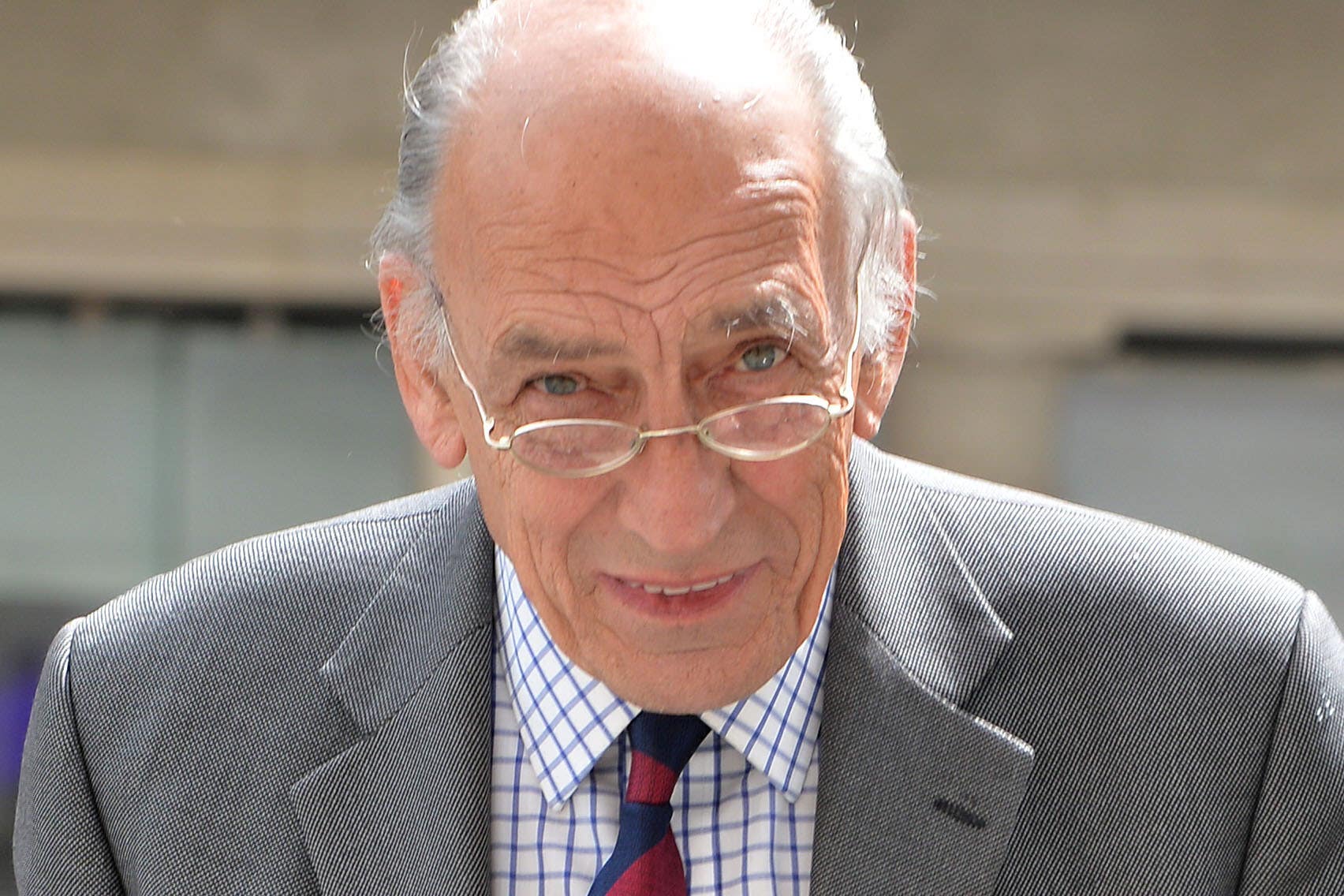Former Army chief General Sir Mike Jackson dies aged 80
He died on Tuesday surrounded by his family.

Your support helps us to tell the story
From reproductive rights to climate change to Big Tech, The Independent is on the ground when the story is developing. Whether it's investigating the financials of Elon Musk's pro-Trump PAC or producing our latest documentary, 'The A Word', which shines a light on the American women fighting for reproductive rights, we know how important it is to parse out the facts from the messaging.
At such a critical moment in US history, we need reporters on the ground. Your donation allows us to keep sending journalists to speak to both sides of the story.
The Independent is trusted by Americans across the entire political spectrum. And unlike many other quality news outlets, we choose not to lock Americans out of our reporting and analysis with paywalls. We believe quality journalism should be available to everyone, paid for by those who can afford it.
Your support makes all the difference.General Sir Mike Jackson has died aged 80, the British Army said.
Sir Mike, a former chief of the general staff and head of the Army, died on Tuesday surrounded by his family.
The father-of-three led the Army during the allied invasion of Iraq in 2003 after serving in Northern Ireland and Bosnia.
General ‘Jacko’ served with distinction for over 40 years
The British Army said in a tribute: “It is with great sadness that we have learnt of the death of General Sir Mike Jackson GCB, CBE, DSO, on October 15 surrounded by his family.
“General ‘Jacko’ served with distinction for over 40 years, finishing his career as chief of the general staff.
“He will be greatly missed, and long remembered. Utrinque Paratus.”
The Parachute Regimental Association said he was a “great leader of men” who will be “missed by many”.
Home Office minister Dan Jarvis, a former Parachute Regiment officer who served alongside Sir Mike, said he was a “soldier’s soldier” and an “outstanding, inspirational and charismatic leader”.
In 1999, as a platoon commander with 3 Para, the now Barnsley North MP was at Pristina Airport, in Kosovo, when Sir Mike famously refused to confront Russian forces, telling his American superior: “Sir, I’m not going to start World War Three for you.”
Mr Jarvis, who later became Sir Mike’s personal staff officer, said he was a “true airborne legend”.
Sir Mike gained a reputation for being a tough and uncompromising soldier and was reportedly nicknamed Darth Vader and The Prince of Darkness by his men due to his cool manner and gravel voice.
He leaves a contentious legacy in Northern Ireland, having served in the region at the height of the Troubles and having been associated with two notorious incidents involving Parachute Regiment soldiers in the early 1970s.
Sir Mike was second in command on the ground in Londonderry on Bloody Sunday in January 1972 when troops opened fire on civil rights demonstrators, killing 13 of them.
He later gave evidence to the Saville Inquiry, which found that the shootings were unjustified, with none of the victims posing a threat when paratroopers opened fire.
Tony Doherty, chair of the Bloody Sunday Trust, said the organisation representing the victims of the shootings would not be grieving his death, as he accused Sir Mike of wreaking “havoc” in Derry and elsewhere in the 1970s.
“There will be no mourning here,” he said. “We look forward to tearing down his statue.”
Six months before Bloody Sunday, Sir Mike was serving as the regiment’s community relations and press liaison in Belfast when paratroopers shot dead several civilians in the Ballymurphy area in the west of the city.
In 2020, a fresh inquest concluded the 10 people who died from gunshot wounds at Ballymurphy were innocent victims.
The Army was found to be responsible for nine of the 10 deaths with not enough evidence to determine who fired the shot that killed the tenth victim.
Sir Mike gave evidence to the inquest and denied there had been a cover up of the regiment’s actions in Ballymurphy.
He became head of the British Army just a month before the Iraq war, replacing General Sir Michael Walker.
During his time as the country’s top soldier, the general had to deal with claims of Iraqi prisoner abuse at the hands of UK troops and growing discontent about the role of coalition troops.
In March 2006, he created headlines after criticising kidnap victim Norman Kember, claiming the Briton had not thanked the SAS soldiers who rescued him and his Canadian colleagues from their captors in Iraq.
Sir Mike retired in August of that year having held the post for three-and-a-half years.
Born on March 21 1944, Sir Mike was educated at Stamford School and Sandhurst before being commissioned into the army as an officer in 1963.
He later earned a degree in Russian studies from Birmingham University while serving in the Intelligence Corps.